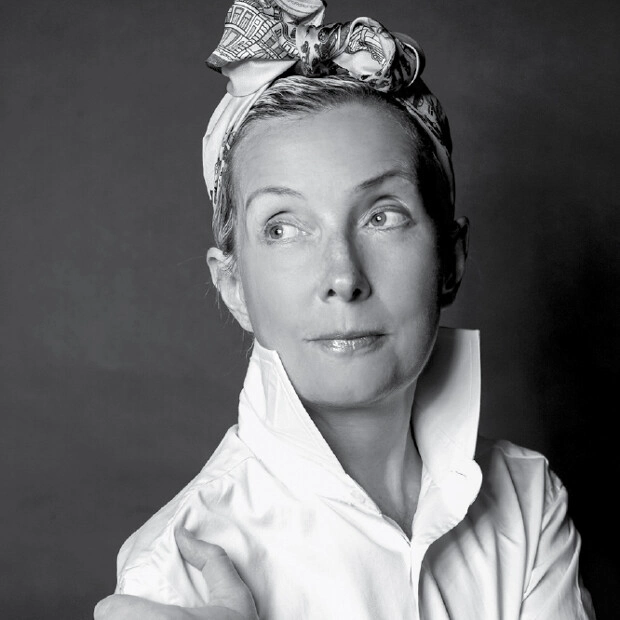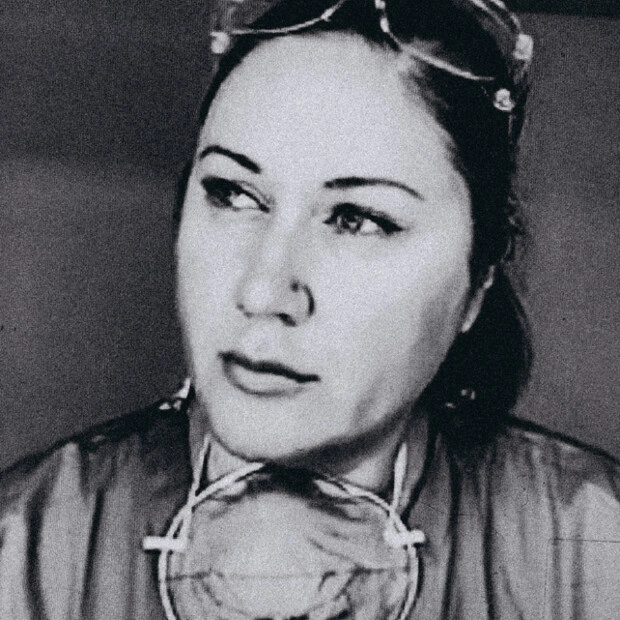Our entire lives, we are in a state of negotiation. Each day is a non-stop penthathlon, where one of the most frequent, difficult tasks, is having to choose between "yes" and "no". It’s easier for us to say yes in response to requests from our superiors or from poor people on the street, to our friends, relatives, and the rest of humanity when they need our money, our time, our ideas, or our work. We treat the word "no" as something that breaks bonds, or connotes aggression or abuse. But should this be so? Gor Nakhapetyan, a member of the Coordinating Council of the Moscow School of Management SKOLKOVO talks with us about the challenge of refusal.
If we had some sort of system of measurement for how dependable people are, I’m sure I’d be somewhere at the top. I still don’t really get what goes on inside me: why do I find myself meeting people’s requests of me, even if I don’t see the point, or I simply don’t want to? It’s much more difficult for me, in these moments, to deal with myself, with whatever chemistry’s going on inside me, than to understand that it’s important for people to be able to say no. Typically, it’ll be someone asking me to come speak at their conference somewhere, or to moderate some session, and, odds are that I just go and do it. Complete strangers message me on Facebook, asking me to meet them in person, and I’ll agree to it. With SKOLKOVO, we created a community of mentors, and I was one of them. At the same time, I didn’t always understand the ins and outs of mentoring for example, how often it would be necessary to meet to give an advice. They’d call me, propose a meeting, and I’d agree, although for me it was utterly inconve-nient: I already had numerous things making demands on my time, both work and family responsibilities. And all the same, as I’ve said, I’d agree. It turns out that by saying yes to others, we say no to ourselves. Why do we do this? What is it? The desire to be good? Fear of not being understood, that you’ll be seen as alien to generally accepted norms and rules? It’s like breaking some taboo that’s been sanctified for centuries...
I recently learned that children are born initially having only two emotions, happiness and anger. Not long after, it becomes four, with the addition of fear and sadness. While the feelings of happiness and anger reside in the present, fear is directed towards the future, and sadness towards the past. It’s like a printer that has four colours, which combine to form others. And I have the feeling that hiding inside reliability is actually the fear of offending people, of coming across impolite. But this isn’t regard for the other person; it’s defending your love for yourself, because at the heart of this fear is the desire to be good in the eyes of other people. So, in my life, it’s been a challenge for me to learn to say no.
In doing so, I began by ruthlessly cutting out everything that obviously needed to be cut out. I calculated that thirty percent of my time had been going to mentoring, to counseling, to lectures, and so on. And I saw that my time was money. So my partners and I have created the Experum.ru platform as a project that will sell people’s time.
As it turns out, I’m not the only one who’s interested in the quandary of having his time unscrupulously stolen. And a lot of people are also familiar with a different problem. There are a lot of iconic, interesting people who possess deep knowledge and unique information that they could potentially be sharing, but there’s no way to access them. Or rather, one has to seek them out through one’s connections, set up meetings, and spend a lot of time tracking them down in order to glean a bit of their expertise. Actually, there’s already a service like this in the Western world I’m not saying we’ve really invented anything. On our site, it’s possible for anyone to get on there, purchase time for a meeting, and communicate with those they’d like to learn from. And when a person is actually paying for the time, they don’t ask stupid questions like, "How did you become successful?" or, "tell me, what should I do?" No, they come prepared, and have established a clear scale of priorities.
And then a bit later, I found myself faced with the arrival of a different emotion, a sense of shame: how can you accept money for time? This was a new challenge, the feeling that I was racketeering. The happiness I’d felt in having solved the original issue turned first into anger, and then into sadness. As a result, I felt this fear that I would be seen as a petty person who only cared about money. And then a new idea arose I’d accept the money, but it would go to charity. It was a half-measure, a first step. We later integrated the charity aspect as a feature of our service. When registering for our site, users choose a foundation, and decide what percentage of their income from the site will be given to charity. That sliding bar, determining the percentage, attests to the degree of shame that person experiences. There’s so much shame in our culture bound up with the issue of making money! And this constituted a reversal in our cultural code... But then there are plenty of private tutors who are paid to give their time and knowledge to children, and aren’t we doing the same thing? We’re tutors, just as they are. The project’s mission is to disseminate knowledge. Everyone has the chance to select "minds" and buy their time. It’s turned out to be something of a "brain market".
If the project succeeds on a consumer-to-consumer level, then business-to-consumer will be our next move. The user of the platform will come to the company and recruit experts to work on a specific problem. There are a numbers of stories that were the inspiration for this idea. The first is from when we were creating SKOLKOVO, and we decided to invite Oleg Tinkov to speak at a conference. When he told us what his speaking fee would be, it was a shock to me. How could this be? This is a conference you have to share your knowledge! But as time went on, I realised it was completely normal we’re just not accustomed to finding that acceptable. If, for example, a child were to get sick, God forbid, and I find a good doctor through some friends and we receive a consultation, I’m not thinking about wiring him some money as a tip. All the same, he has spent his professional time.
The second story has to do with Olga Fleur and her organization Meet For Charity. They have an auction system, and we learned that more is offered for business people than for celebrities. This is because buying time to take a picture is foolish, and isn’t of much benefit. But the chance to ask the right question and have a professional answer has become highest priority, and has found its price. But we didn’t stop there with our experiments: during the Atlanta business forum, we organised a mentoring lounge, and asked our mentor friends to come. Everyone who wanted to participate had half an hour, and at the entrance were boxes for charity where the guests paid what they felt was appropriate. In total, two hundred people came through our lounge.
It’s pretty clear that conferences have outlived their usefulness. They’re helpful for networking purposes, but it’s very difficult to learn anything new from a stage. A lot of public figures filter what they say up there, and as a result, the audience doesn’t receive much useful information, and most of what they do receive is primarily motivational, rather than something they can actually put into practice. And it’s quite difficult to track someone down after their speech, when they’re surrounded by journalists. Some people find it hard to ask for business cards and whatnot. It’s easier to buy time.
It’s gotten easier for me to tell people no, but it’s still uncomfortable. The challenge remains. I’ve found a technological means of solving my problem, but the psychological side of it is still difficult. I haven’t yet been able to vanquish my fears, or rather, the desire to be good to everyone. May-be I just need to repeat to myself, a little more often, the words of Baltasar Gracian: "He who belongs to everyone does not belong to himself."






